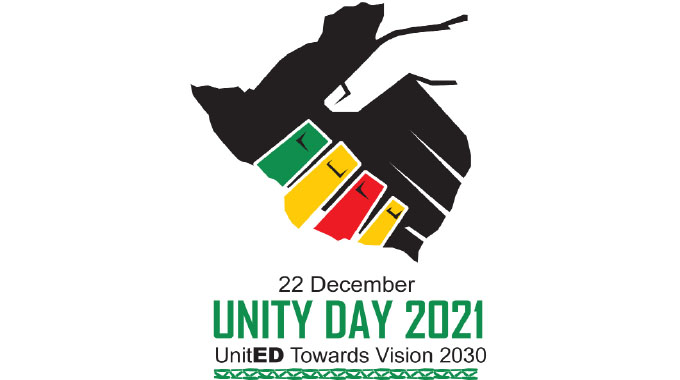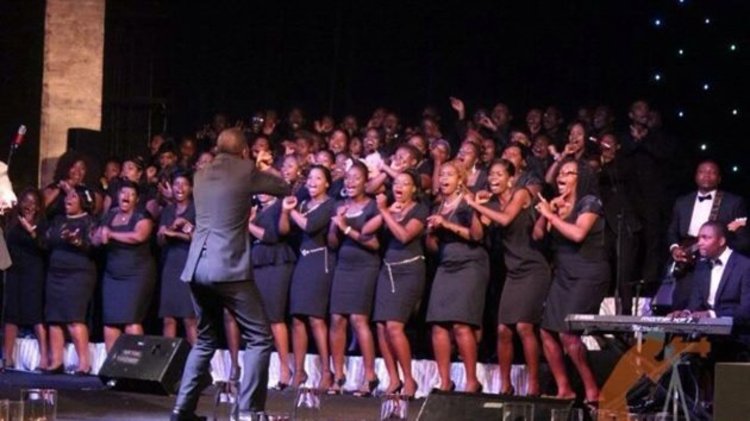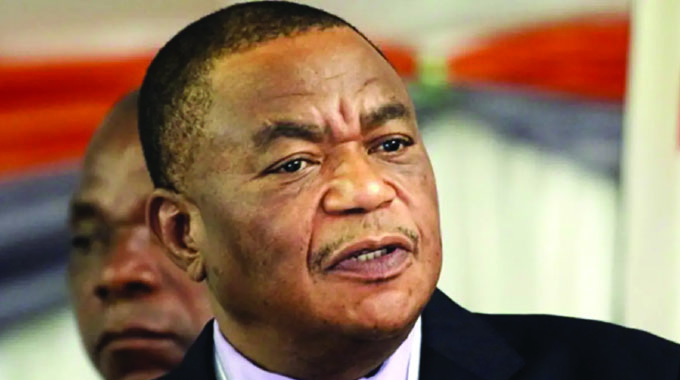Editorial Comment: National unity is most important

Today is National Unity Day and both the concept and the day itself need more attention than many are sometimes prepared to give.
National unity does not mean that we all agree with each other, or even that we should agree with each other. Zimbabwe is made up of millions of people who all have their own ideas, priorities and preferences. We are also a democracy so we have systems in place that allow us to express our views, trying to persuade others, and which are used to achieve consensus where possible or sought out which views have majority support.
What national unity means, and must mean, is that we all put our country first and we all want the best for our country and our fellow citizens. We need a reasonable degree of consensus on such important issues as the declaration of rights in the Constitution and the systems we use to reach national decisions, even if we dislike the decisions reached.
This is one reason why when we decided to write our own Constitution, to replace something drawn up in Britain during a process to end colonial rule and the liberation war, everybody was invited to participate in the process and give their views. A Constitution needs to be something with far wider support than other laws and we managed to achieve that, with unanimity when the final draft came to Parliament.
If we have some dispute or irreconcilable difference of opinion we should not try and beat up or injure those who disagree with us, or destroy their property. Rather we tramp into the courts and find out who has the legal rights, and this can all the way to Constitutional Court, now with a full-time bench of its own, when it comes to fundamental rights or something equally important.
If we think the law applied in a court on some issue is wrong we ask Parliament to change it, and we have the right, every five years, to choose that Parliament.
These systems are responsive to the views of the people. The majority will form a majority in Parliament, but the Constitution and the courts will protect those who differ, although they should accept that this time round they did not win.
National unity encompasses far more than agreement on this or that policy. It is an idea where we seek what is best for our country and accept the systems we have put in place to resolve our differences. It means that we use those systems, rather than seek outsiders to dictate to us as some still want to do despite the fact that we won our own independence and freedom.
National Unity Day marks the anniversary of the accord that united the two largest political parties at the time and ended a deplorable state of affairs that had seen a great deal of violence, that as became ever more apparent later, had been fuelled and in many cases instigated by apartheid military and intelligence forces meddling.
There was nothing that automatically required the two parties to unite for us to achieve national unity. The extra step was taken because the two parties were very similar in political outlook, having both come from the same nationalist struggle in the 1960s and having fought the liberation war together and ended it together. They were even in coalition after the first election, largely because they thought so much the same and the coalition only ended because of other far less important issues that in retrospect should not have been allowed to move into the centre of the stage.
Restoring the unity of the nationalist movement that had done so much to bring freedom to Zimbabweans was an obvious extra step, but not a required or necessary step for us to achieve national unity. This was why the day became a national holiday, as it went so much further than the internal arrangements of the party that held a majority in Parliament, something that is important but hardly enough to make the calendar.
To a large degree the Junior Parliament that met on Monday provided an example that some far older Zimbabweans could emulate. The young people assembled at State House were fairly united in how they wanted their country to progress and were definitely not going to whitewash over the cracks.
They basically wanted a country that stopped messing them around, and making them victims of wrong or misapplied traditional practices and they laid it on the line: ending the practice of victimising young girls in child marriages, a lot more direct action to end drug abuse, far better online access for everyone so they can get a better education, and the practical matter of financial support for that education. In other words they want Zimbabwe to be a better country.
The advances in the outlook of the younger generations was perhaps exemplified by their choice of their spokesperson and public face, the child president. She is from what we saw and heard an intelligent, determined and very eloquent young lady who happens to need a wheelchair for personal mobility. Yet for the rest of the Junior Parliament the gender and the chair are “so what” trivial factors.
And anyone worried about tokenism can simply glance at the insignia on her blazer, showing her own school thinks she has the “right stuff” with a high level of leadership and general qualities.
So in the end, national unity does not mean some monolithic acquiescence and all of us thinking and acting the same. What it does mean is that we agree to disagree in decency; that we seek to push forward our country and make it better tomorrow than it was yesterday, in every aspect; that while displaying passion for what we believe is needed and must be done, we respect those who might disagree; and that we argue and adjudicate our concerns internally without involving outsiders who always have their own agendas.










Comments